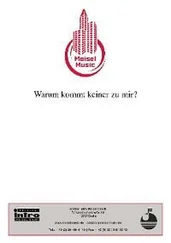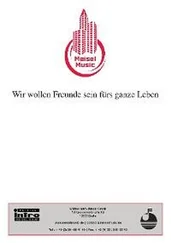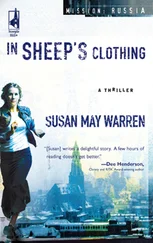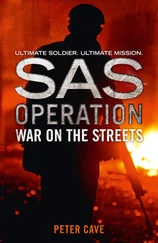He knew Zakayev would hear every word he said.
“Kapitan, are you hurt? What is happening?”
He recognized the voice: the senior michman, Arkady.
“Who has the conn?”
“I do, Kapitan. And I’ve broken out small arms from the weapons locker. I'll bring them.”
“No. Stay in the CCP.” He took a breath. “Chief Engineer, if you are listening, this is the Kapitan. Do not trigger the charges unless I order you to. General Zakayev is no longer in charge of the mission and you will not follow any orders he issues. Arm yourself in case General Zakayev tries to enter the compartment and blow the charges himself.” He toggled off. He knew that if Zakayev somehow escaped into the reactor control compartment, there was no way the chief engineer would survive a battle with the little general.
After a beat, Litvanov retoggled the mike.
“Arkady.”
“Yes, Kapitan?”
“Where is the Amerikanski?”
“We’re trying to locate him.”
“And the Russian patrol boats?”
“Closing in from the north at high speed."
“They know we’re here. Arkady?”
“Kapitan?”
“On contact with the Amerikanski, open fire.”
“Aye, Kapitan.”
Litvanov almost blacked out from the pain when he lifted his arm by the shirtsleeve and lowered it into his lap. He forced his head to clear and tried to think. He and Zakayev weren’t enemies, they were friends. No, more than friends: soldiers fighting a brutal war. The Americans and the Russians were their enemies. Instead, here they were with time running out and the mission a shambles, fighting each other.
He blamed Zakayev, the little general who thought it would be so simple. The little general who understood nothing about maneuver at sea and about tactics, only how to ambush and kill Russian Spetsnaz. So simple, he had lectured, to drive into St. Petersburg and martyr yourself. If it had been left up to Zakayev, they’d have been sunk by now and the Russians, to celebrate, would be grinding Chechnya into dust.
“General, perhaps now you see my point!” Litvanov shouted.
Silence.
“The American is determined to kill us.”
Again, silence.
“Now that he knows, he won’t rest until he’s finished us off. You see that, don’t you?”
A voice returned from the darkness. “I see only what I saw before, that you are obsessed with the American. It’s your private war we’re fighting, not the war we agreed to fight. For that, I should have killed you when I had the chance.”
Litvanov mopped his face with a blood and sweat blackened shirtsleeve. He heard his dead wife and children calling him. But there was nothing he could do for them. He heard their screams echoing in his fatigued brain. But it wasn’t their screams at all, it was a voice coming from the SC1 shouting, “Torpedo inbound!”
“He hears it,” Scott said. “He’s turning away, fast.”
Now they had a bearing and range on the K-363. The fire control computer gobbled up the data and sent it to each of the torpedoes waiting in their tubes.
A new blip, then a thick red line emanating from the K-363, appeared on the sonar screen.
“He’s fired a torpedo down the bearing of our incoming fish,” Scott said, aware of Alex and Abakov watching over his shoulder.
The sonarman pointed to a curving green line. “Just as you said, Kapitan, it’s cutting back abaft the K- 363’s starboard quarter.”
“Look: He’s fired another one down the same bearing,” Abakov said.
“Stand by to fire decoys,” Scott commanded. He saw that his plan might work, that turning off their firing point would likely take them out of the K-363’s torpedoes’ sonar range. Even so, he wanted the decoys ready if needed.
Four blips looking like red-hot sparks flying up a chimney flue shot from the K-363, their red-lined sonar traces splayed like fingers into the wakes of the K-363’s outbound torpedoes. But as they watched, the torpedoes began to veer off course and curve back toward the decoys. A moment later they started wigwagging as if sniffing for a target.
“Jesus Christ,” Scott said. “They fired their decoys too soon. Their own torpedoes picked them up and are on a circular run. If they don’t intercept the decoys, they’ll lock on the K-363 instead.”
Something nagged at Scott, something he remembered from an intelligence briefing about Russian torpedoes and their propensity for running afoul of their own decoys. Something about a faulty range tracking pinger and the lack of anti-self-homing interlocks…
They watched, amazed, as the two thick red lines curved around and started inching back toward the four thin red lines fanning out from the K-363. One of the torpedoes appeared to overrun one of the thin lines and, a split second later, exploded, the force of the underwater detonation hammering the K- 480.
“Look! His other torpedo. What's it doing?” Alex said, shaken up and showing it.
“It got through a gap in the decoy coverage and it’s looking for a target,” Scott said. “It’s a race now, between their fish and ours, to the K-363.”
The red line, like the green line emanating from the K-480, was only inches from the K-363’s marker on the sonar screen. The red line was gaining.
“Can’t they do anything?” Alex said, with what almost sounded to Scott like a touch of sadness in her voice.
“Too late,” Scott said.
Litvanov heard sonar waves bouncing off the hull. Then a shrieking turbine and the high, rising Doppler pitch of contrarotating torpedo screws. He knew instinctively that it was their own torpedo coming in on a circular run.
He ignored Zakayev, forced himself to his feet, and burst from the machinery space where he’d lain, into the CCP. He blocked the pain from his broken arm shooting into his brain and heard himself screaming orders: “Full dive on the planes! Hard right rudder!” But the image of converging lines painted on the sonar monitor mocked Litvanov’s frantic attempt to avert disaster. A cry, a mixture of despair and anger, rose from his throat.
Zakayev clawed for a moment at the door to the reactor control compartment, barred from the other side by the chief engineer. Defeated, he slumped to the deck and thought about the girl named Irina. He saw her lovely face and saw her shedding tears for her dead family. He saw Drummond and the quizzical look on his face in the hotel room in Murmansk. A joke, Drummond had thought. The sailor too. They were all dead, the bull, Serov and his men. Now it was his turn to die.
Zakayev heard the torpedo warhead punch through the hull and detonate. For an instant he felt the crushing rise in air pressure and the searing heat. And then he felt nothing.
The blast ripped through the CCP, killing everyone. Plasma roared through the ship fore and aft crushing compartments, tearing apart machinery, igniting fuel, and detonating torpedo warheads. The nuclear reactor, ripped from its moorings in one piece and thrown from the wreckage, plunged to the bottom of the Baltic Sea, trailing debris.
It was over in an instant, the fury unleashed in a gigantic bouquet of filthy water that shot more than a hundred feet in the air and, as if eager to have it finished, collapsed, leaving behind only a dome of swirling bubbles to mark the K-363’s grave.
* * *
The cocktail reception at the Hermitage had been under way for over an hour. Both presidents laughed and drank champagne. The Russian foreign minister drank vodka, as did the defense minister. Admiral Stashinsky, in navy mess jacket, red sash, and medals, preferred American bourbon. He listened in as the first lady of the United States, her satin-black skin set off dramatically by the white silk of her Lagerfeld mini dress, kept the bearded Russian president hanging on her every word.
Читать дальше












